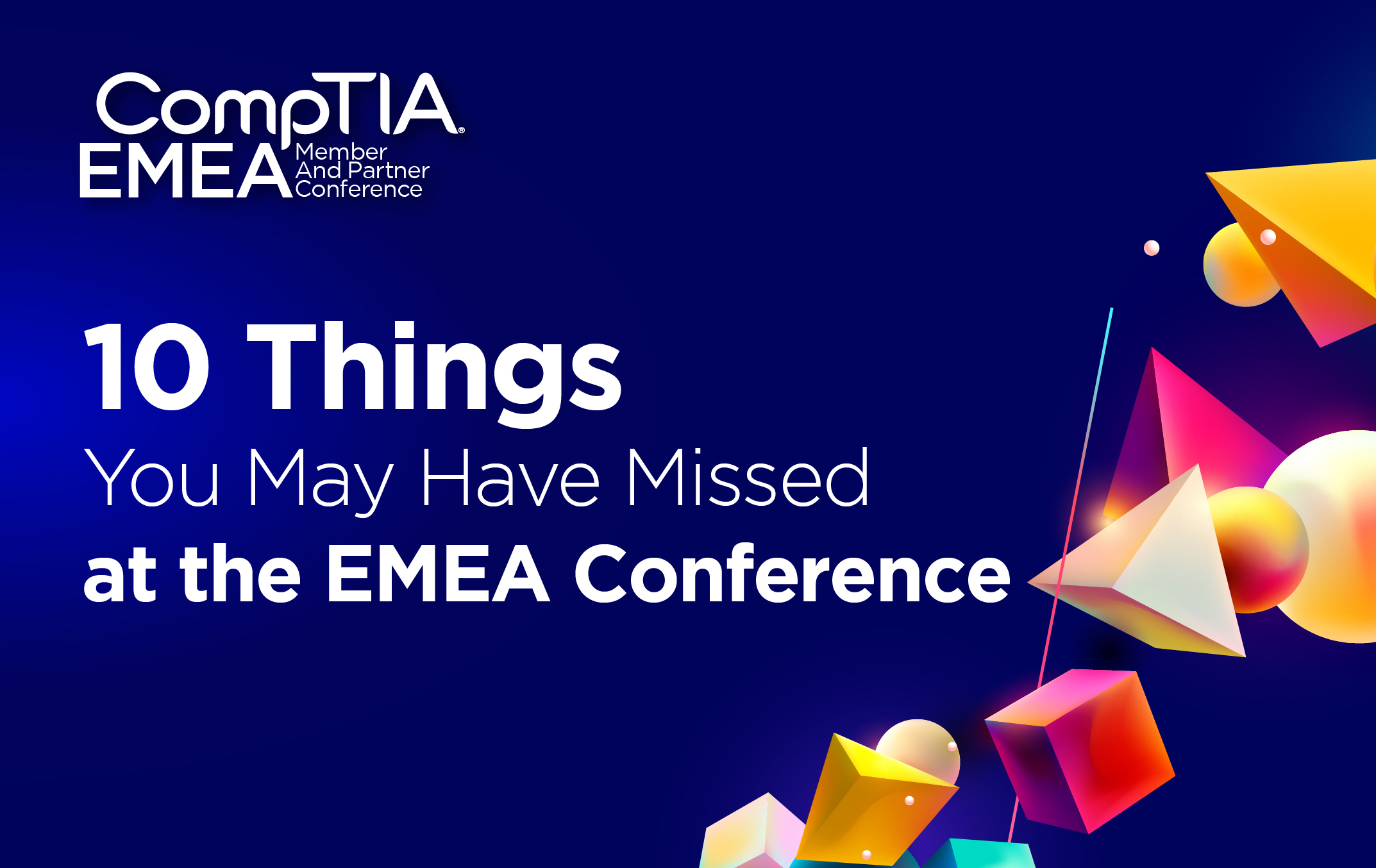
In the world of the MSP there is no “one-size-fits-all” secret sauce to success.
But the keys to running a successful MSP business are not as complicated as some might think—it is all about looking after your people, working with the right customers, and learning from any mistakes as a team.
Three MSPs shared some of their key tips to success at the 2022 CompTIA EMEA Member & Partner Conference in London during a panel discussion entitled: Award Winning MSPs Share Their Secrets moderated by Hollie Whittles, information security and HR director at Purple Frog Systems.
All three agreed that it was vital to choose your customers wisely, be laser-focused on a specialist area—whether this is a particular technology set or a specific vertical sector/customer type and try not to be a jack-of-all-trades.
Kevin O’Loughlin, CEO and founder of Ireland-based MSP Nostra, said in the early days they just wanted new business and would take anything in any form, but they soon realised this strategy was not a recipe for success and it didn’t make long-term commercial sense.
“About six years ago we defined what the minimum standard our customers had to be, and this is when our growth really started,” he said. “We went to every customer and said, ‘You must meet this standard and if you don’t you won’t be a customer anymore.’ We now have a very defined set of products and tools that we offer, and our customers accept that.”
Colin Blumenthal, managing director of Complete I.T. agreed, and said it was also important to be proactive when it comes to customers.
“Know your market—we are SME-focused for example. Know what you are good at and have a clear proposition of what you are providing to the market you are focusing on and be clear about why you are different and why you are better than your competitors,” he said. “It is not about providing a break-fix reactive IT service and waiting for the phone to ring. Everybody should have some level of proactivity when developing a roadmap and communicating that with your clients.”
Scott Riley, founder and consultant at Cloud Nexus, added: “We have this niche focus on Office 365 and Azure, and it means I can build a tactical team of people who really are passionate about what they do. We treat our people like absolute gold—they are our assets. Niche down on what you are good at and for everything else have a trusted partner.”
Related Blog: 3 MSPs, 3 Success Stories: Cybersecurity, Staffing and Business Growth
Staying Close to Customers
Because the pandemic forced such a mass rush to flexible working in 2020, MSPs were forced to get even closer to their customers and help them in ways they never would have expected before COVID-19 hit.
All three MSP chiefs agreed that providing that extra service and support to clients during the pandemic had become almost a moral duty, and some even suspended invoicing for particular customers in the hardest-hit sectors to help them through the most difficult months. In turn that has resulted in deeper customer loyalty, better communication and has created goodwill.
Leading by Example
When asked what makes a great leader, the panel were pretty much in agreement once again. A great leader can take a step back and let other people in the business take on more responsibility, rather than acting as a bottleneck at the top.
“Let go and empower your team. People will make mistakes, but they have to do that to thrive,” said Blumenthal. “Freeing up senior members of your team also means they can go out and win new business and focus on growth.”
Nostra’s O’Loughlin said he was consistently making himself redundant in his role which has allowed him to concentrate on acquisitions while enabling more of his colleagues to develop and learn new skills.
“It has allowed me to focus more on acquisitions, and next year I’m going to start looking at the UK and beyond,” he said.
Eliminating the blame culture was also important, as was the ability to put yourself in the shoes of the people on the other side of table when making strategic decisions. If a workforce is not fully on board with a particular strategy, it will be harder to implement.
Being present as a leader was very important, as was eliminating any toxic culture in the business, said Riley. “Too many MSPs still have a ‘blame thrower’ culture, which is toxic. It needs to be removed. We also need to invest in the next generation of talent and focus on more diversity in our industry.”

 Add CompTIA to your favorite RSS reader
Add CompTIA to your favorite RSS reader
.png?sfvrsn=f730d7d1_2)
